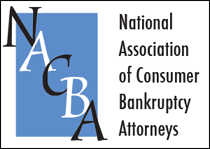
If you are considering bankruptcy, you have options. Bankruptcy 13 is a popular choice that might be perfect for your situation. Although Chapter 7 bankruptcy may also be on your radar, you must qualify for it. In certain cases, bankruptcy 13 is your only option.
Before deciding, you should determine your eligibility. You are not eligible for Chapter 7 bankruptcy if any of the following apply to your debt situation:
- Your monthly income for a household of your size is more than the median income for your state. The calculations are based on your monthly income for the six months prior to the bankruptcy filing date. If you make more money, then you are ineligible for Chapter 7 bankruptcy.
- Your disposable income exceeds certain limits set by the law. This is calculated after particular expenses and monthly payments are taken out; these payments would go toward paying your Chapter 13 bankruptcy. You can figure everything according to the “means test.” The test determines if you have the financial means to repay a certain amount of your debt. This would go towards a Chapter 13 bankruptcy repayment plan. If you do not pass the means test, then you are ineligible for Chapter 7 bankruptcy.
In order to ensure you are ineligible for Chapter 7 bankruptcy, and, therefore, that you must apply for Chapter 13, you should consult an attorney. Congress has its own idea of what disposable income, current monthly income, and expenses are. These definitions may be different than what you think. According to Congress, your income may be more than what you feel it is. Further, the means test can be complicated, but your attorney will be able to assist you every step of the way.
In some cases, you may be eligible for both Chapter 7 and Chapter 13 bankruptcy. However, chapter 13 will be a better option for you, depending on your debt situation. In order to determine if Chapter 13 bankruptcy is for you, there are several factors that you should take into account, including the following:
- Are you behind on your mortgage or car loan? If you file for Chapter 13 bankruptcy, you can reinstate the original agreement and make up the missed payments over time. If you sign up for Chapter 7 bankruptcy, this is not possible.
- Do you have a tax obligation or student loan? You can include these debts along with others in your bankruptcy 13. Over time, you will be able to pay them off.
- Do you truly want to repay your debts? You can have good intentions, but need the help of bankruptcy in order to protect yourself in court. If creditors, lenders, and other collection agencies are harassing you, there is help. After you sign up for Chapter 3 bankruptcy, you can follow the court-ordered structure and deadlines, which prove to the creditors, lenders, and other collection agencies that your word is good when you say you want to pay back your loans.
- Do you have any nonexempt property that you want to keep? If you file for Chapter 13 bankruptcy, you will be able to keep both your exempt and nonexempt property. Chapter 7 bankruptcy forces you to hand over your nonexempt property to the bankruptcy trustee, in which case it would be sold. The proceeds would then be distributed to the creditors, lenders, and collection agencies. With Chapter 13, you keep all of your property and make monthly payments to repay your debts.
- Do you have a co-debtor on your personal debt? When you file for Chapter 13 bankruptcy, your co-debtor will be left alone as long as you make your monthly payments. However, with Chapter 7 bankruptcy, the co-debtor is still on the hook and creditors will continue to bother them for money.
After asking yourself these questions, you should have a better idea of why Chapter 13 bankruptcy is better for your particular situation. On the other hand, maybe it will make you think Chapter 7 bankruptcy is more ideal. Whatever the case may be, your attorney should be the person you turn to for counsel and advice. If you are on the fence about the different bankruptcies, your lawyer will help point you in the right direction.
When you consult with your attorney, you may realize bankruptcy is not the right for you at all. Rather, debt settlement, debt consolidation, debt negotiation, or debt relief may be viable solutions. One fact that holds true no matter what you choose is that you should not face the creditors, lenders, and collection agencies alone.

